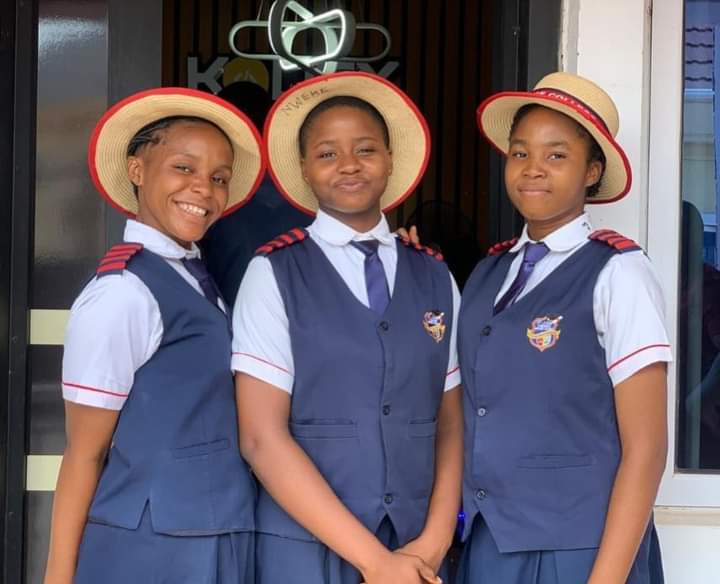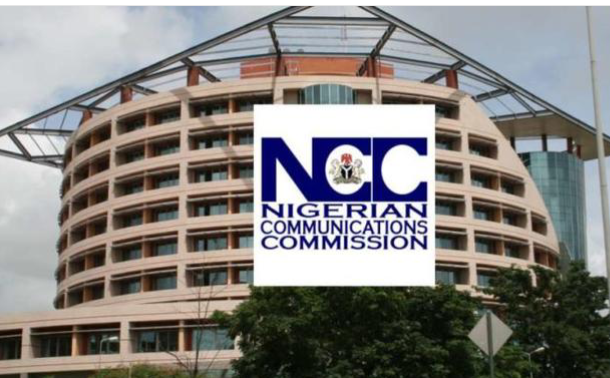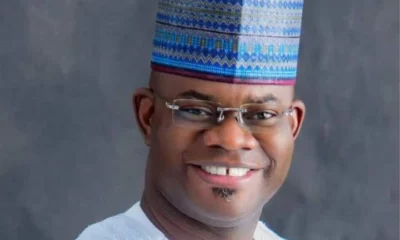Tech
Nigeria Startup Bill Poised To Unlock Digital Potential


Nigeria has moved a step closer to rolling out its landmark Nigeria Startup Bill (NSB) that will further deepen the country’s technology ecosystem and enable a sector on the cusp of exponential growth.
The Presidency and leaders of the Nigerian technology industry have worked on the bill which has now been approved by the Federal Executive Council and is being sent to the National Assembly by President Muhammadu Buhari.
The Federal Executive Council approved the bill on Wednesday, December 15, 2021. The Bill will ensure regulatory support as Nigeria continues to attract hundreds of millions of dollars of international investment.
The NSB will create an enabling environment for Nigerian startups to thrive, and the legislation addresses challenges such as disruptive regulation, weak infrastructure and difficulties accessing capital, particularly for non-fintech businesses.
The Bill has come about through a Big Tent Approach – close collaboration between the Presidency, the Federal Ministry of Communications and Digital Economy, the Nigerian Export and Promotion Council and wider government bodies with almost 300 volunteers and private sector players participating, notably venture capital investors Future Africa and Ventures Platform, legal firms TLP Advisory and Aelex, policy advisors Advocacy for Policy And Innovation (API) and Innovation for Policy Foundation, and media organisations TechCabal and Wimbart. Google Nigeria and the UK-Government, through the West Africa Research and Innovation Hub and the UK-Nigeria Tech Hub, are also backing the bill.
Praising the Big Tent Approach, Adaeze Sokan, Country Director at the UK-Nigeria Tech Hub said “the inclusive and collaborative process is laudable and can serve as a framework for policy formulation in the country.”
The NSB aims to provide a platform where startups can continuously engage regulators. Its key objectives include regulatory certainty, local content and providing an enabling business environment. There will be more support for local angel investors, funds and incubators, alongside national co-investment schemes and incentives for investing in early stage startups. In addition, policy designed to reduce currency constraints will have broad reaching impacts on the ability for startups to raise and expand internationally. In terms of infrastructure, the Bill will lead to tech parks, subsidised local data facilities, better broadband connectivity and open-source data.
Despite having the highest number of startups on the continent, currently estimated at 750, Nigeria ranks below countries like South Africa, Kenya, and Tunisia in terms of business friendliness. While Kenya and Tunisia have passed their Startup Bills into law and South Africa are in the process of passing theirs, the results of boosting business friendliness will be significant.
With an already flourishing, world renowned tech ecosystem in place, a more robust macro environment will enable Nigerian startups to further their missions, power the economy, create more good jobs and propel the country’s development in a globally competitive context.
In just two decades Nigeria has fostered two indigenous unicorns [companies valued at over $1Bn], despite the country’s infrastructure and regulation not keeping up with the pace of disruption by the tech sector. Nigeria has also served as the key market for five of the continent’s unicorns (Interswitch, Andela, Jumia, OPay and Flutterwave) and is the giant of African tech in terms of the country’s ability to attract investment. Between 2016 and 2020 Nigerian startups were the most funded on the continent, raising $1.58 billion in venture capital and representing 27% of the overall deal volume, closely followed by Kenya. The NSB is expected to accelerate this progress and lead to many more Nigerian unicorns in years to come.
“The NSB is one among a series of key activities the Presidency is using to drive the building of a more sustainable ecosystem for young people in Nigeria to thrive and scale,” said Oswald Osaretin Guobadia, Senior Special Assistant to the President on Digital Transformation and the NSB Lead.
Securing jobs for Nigeria’s youthful population is a key challenge for the government, and the NSB is aimed directly at fostering new talent in the growing technology and start-ups sectors. By providing for regulation around startup registration, tax incentives, talent development, university-industry collaboration, and increased public tech procurement, the NSB will ease barriers to entrepreneurship and innovation.
Kola Aina, Founder and General Partner of Ventures Platform Fund, added, “the bill is being proposed to provide an enabling environment for the growth of startups and guard against different challenges faced by startups such as seemingly disruptive regulations, lack of regulatory certainty and weak infrastructure like broadband, open data, and digital platforms that limit the optimization of the many benefits of the digital economy.”
The Bill serves as common ground for the tech community and regulators, enabling founders to build with more confidence while providing regulators with the tools to ensure that consumers are adequately protected. This will, in turn, benefit the Nigerian economy at large and appease stakeholders involved in animosity in recent times.
Tech
Anambra School Emerges Winner In National Girls In ICT Competition With Groundbreaking VR Technology


St. John Vianney Science College, Igbariam, used their virtual reality project to conquer the National Girls in ICT Competition 2024, claiming the national championship title yesterday!
The National Girls in ICT Competition, organized by the Federal Ministry of Communication, Innovation and Digital Economy, is a technology innovation competition for all girls in secondary schools across Nigeria.
Their innovative project, M-Tag VR, allows users to explore iconic landmarks like Zuma Rock and learn about fascinating cultural aspects of Nigerian tribes. The girls, Immaculate Ebube Ikegwuonu, Camilla Anyadike, and Nweke-Nonso Oluchi, mentored by their coach, John Onuigbo, triumphed over teams from all 36 states.
The girls’ talent shone brightly throughout the competition. They started at the state level where they aced the Anambra state competition, then proceeded to conquer the Southeastern regional championship, defeating teams from Ebonyi, Imo, Abia, and Enugu, to make it to the national finals.
Rivers and Lagos states secured the second and third-place positions, respectively.
Tech
Google To Delete Billions Of Browser Records To Settle ‘Incognito’ Lawsuit


CNN reported that Google will delete billions of data records as part of a settlement for a lawsuit that accused the tech giant of improperly tracking the web-browsing habits of users who thought they were browsing the internet privately.
The suit was originally filed in 2020 and accused Google of misrepresenting the kind of data it collects from users who browsed the internet via “Incognito” private browsing mode in Chrome. Google agreed to settle the suit late last year, but the terms of the settlement were first disclosed in a filing on Monday.
As part of the settlement, Google must delete “billions of data records” that reflect the private browsing activities of users in the class action suit, according to court documents filed Monday in San Francisco federal court.
Google will also update its disclosure to inform users about what data it collects each time a user initiates a private browsing session. Google has already started implementing these changes.
For the next five years, Google will also let private browsing users block third-party cookies as part of the settlement. Google also will no longer track people’s choices to browse the internet privately.
Tech
NIN-SIM Linkage: NCC Directs Telecommunication Operators To Bar Non-Compliant Subscribers


The Nigerian Communications Commission (NCC) has confirmed that it would not be reviewing its deadline to bar owners of more than four SIM cards whose SIM registration data failed to match their National Identity Number (NIN) data.
A source within the Commission explained that the Commission’s position was hinged on its objective to clean the country’s SIM ownership database, and ensure that criminals could not take advantage of having multiple unlinked SIMs to carry out their nefarious activities.
“We are not standing back on our decision. March 29th is sacrosanct. Our resolve is hinged on the need to close in on the chaos of untoward ownership of multiple SIM cards with unverified NIN details. We have instances where a single individual has over 10,000 lines linked to his NIN. In some cases, we have seen a single person with 1,000 lines, some 3,000 plus lines. What are they doing with these lines?
“From our interim findings, the owners of these lines did not purchase them for decent purposes or to undertake legitimate activities.
“We have given them enough time to make the decision of which of their lines they want to keep, and discard the others. They did not. All lines in this category with unverified NINs will be barred. They will be then expected to go to their operators and decide which of the lines they want to keep, as well as submit correct NIN details.
“Some people would say they want to use it for car trackers, or for IoTs, but provision has been made for these services already. They are not under the ‘Max-4 Rule.’
“Across the world, no country allows you to have 1,000 SIM cards to make calls or texts.”
The Max-4 Rule announced by the Federal Government in April 2021 provides that telecom subscribers cannot have more than four lines per mobile network operator.
The NCC has also provided Mobile Network Operators (MNOs) an extension till July 31st 2024 within which they are expected to verify all NINs submitted by subscribers with four (4) or less SIMs, as well as bar those whose NIN fail verification with NIMC.
An authoritative source within the Commission who is familiar with the matter stated that the Commission’s management arrived at the decision at a crucial meeting it held today to review requests from the major Mobile Network Operators requesting for extension for the verification of NINs submitted.
The source also stated that the Commission is mulling the idea to approve an online application solution for MNOs where their subscribers whose NIN verification failed due to biometric mismatch can update their records on the app, while existing subscribers can register additional lines.
-



 News4 days ago
News4 days agoNiger State Prisoners Run From Facility After Rainstorm Brings Down Part Of Fencing
-



 Tech4 days ago
Tech4 days agoAnambra School Emerges Winner In National Girls In ICT Competition With Groundbreaking VR Technology
-



 Politics3 days ago
Politics3 days agoEnugu State Government Flag Off Palliative Distribution In The State
-



 Spotlight4 days ago
Spotlight4 days agoNigerian Woman Breaks Guinness World Record With 55-Hour Interview Marathon
-





 News3 days ago
News3 days agoEFCC: New Documents Extracted Shows Yahaya Bello Allegedly Paid School Fees To The Tune Of $845,852,84 For His Family Members
-



 News2 days ago
News2 days agoKing Charles Reportedly “Really Unwell” And Funeral Plans Are Currently Being Reviewed
-



 Entertainment2 days ago
Entertainment2 days agoBig Congratulations To BBNaija Star, Miracle Igbokwe Who Graduated With Distinction From Embry-Riddle Aeronautical University In Florida USA
-





 Finance2 days ago
Finance2 days agoAISA Has Refunded The Fees Paid By Yahaya Bello To EFCC






